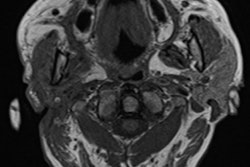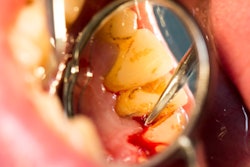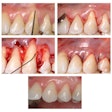
Eating fish may be linked to reduced periodontal disease in men, according to a poster session on July 24 at the virtual International Association for Dental Research (IADR) meeting.
Higher levels of biomarker 3-carboxy-4-methyl-5-propyl-2-furanpropionic acid (CMPF) in men were linked to less bleeding on probing and fewer periodontal pockets. However, there was no significant link between CMPF and periodontal health in women, researchers from the U.S. and Sweden noted.
"CMPF is inversely associated with the degree of periodontal disease in male subjects," the researchers wrote.
To study the link, researchers used liquid chromatography-mass spectrometry to take blood samples from 922 participants to determine amounts of CMPF in their systems. Then, they used regression modeling to determine the amount of the metabolite in the patient samples in relation to periodontal diagnosis and disease parameters.
In men, higher levels of CMPF were associated with 1.2 fewer periodontal pockets greater than 4 mm. Higher CMPF levels were also associated with 0.49 fewer deep periodontal pockets.
Additionally, men with high CMPF levels had 2.9% less bleeding on probing and 0.23 more teeth. In women, there was no link between the fish consumption biomarker and periodontal health.
Though more studies are needed to evaluate the association further, "fish consumption may have a protective effect on periodontal disease," the authors wrote.




















